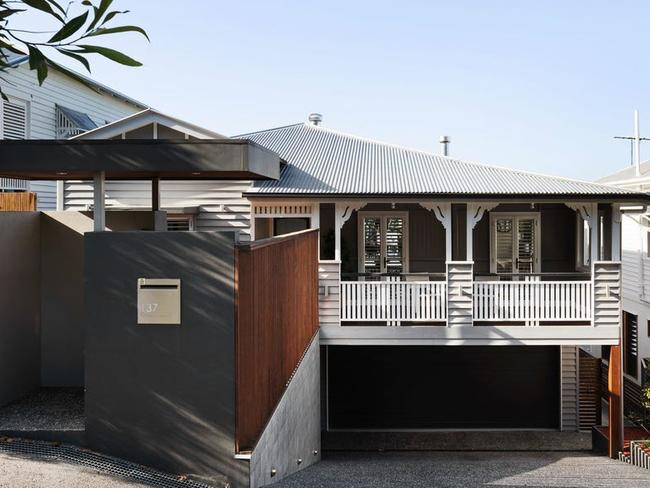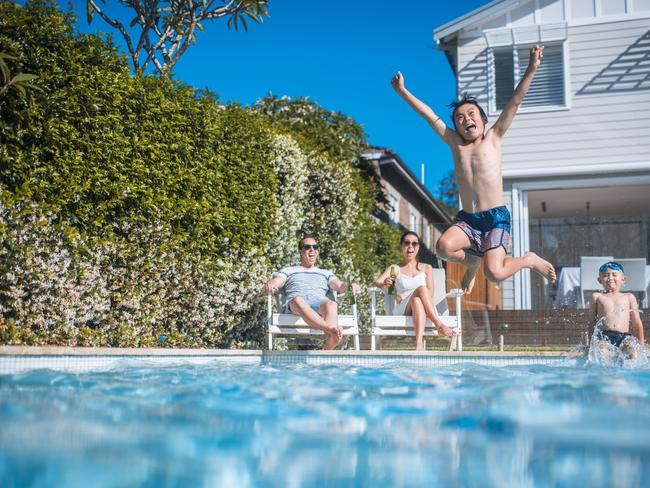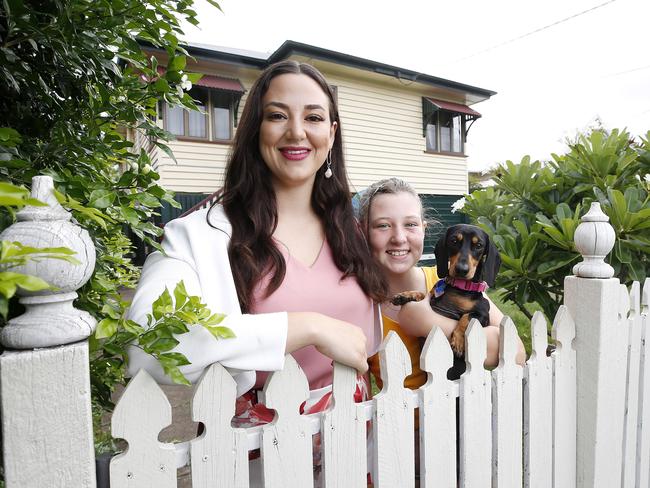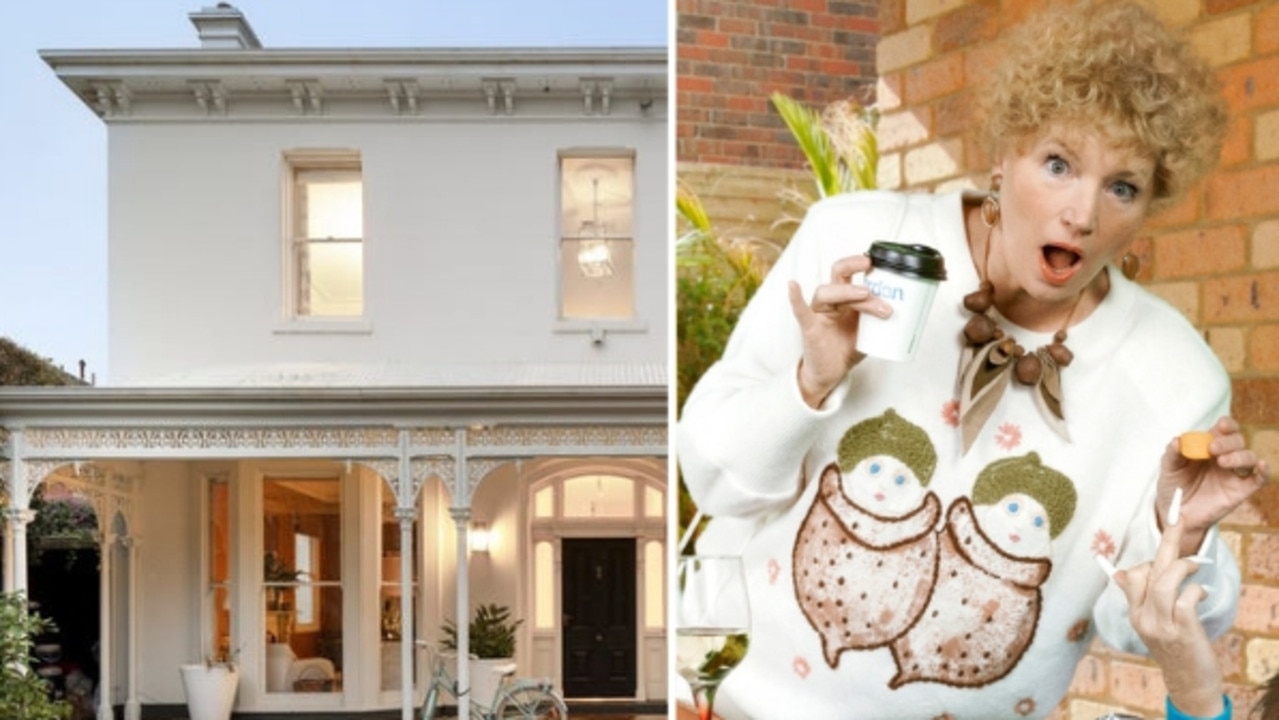Rentvesting: Lifestyle trend turning renting on its head
As home ownership becomes an increasingly challenging issue for Australians, many prospective buyers are turning to a long-term lifestyle alternative.

Property
Don't miss out on the headlines from Property. Followed categories will be added to My News.
The path to the Great Australian Dream of homeownership is getting longer, and bendier, as affordability dwindles.
One non-traditional, but increasingly popular, stepping stone onto the property ladder is rentvesting – renting where you want to live and investing where you can afford. While many choose this as the route to one day owning their forever home, others see it as a long-term lifestyle.
RENTVESTING: WHY RENT IF YOU CAN BUY?
Chris Gray, CEO of buyer’s agency Your Empire, author and TV presenter, has rented the family homes he lives in with his family for more than 20 years. Although he is a long-term tenant, he has spent the past two decades investing in a portfolio of properties.

“In Australia, there’s a perception renting is for poor people; unlike in other parts of the world. I’ve rented multimillion dollar properties with 360-degree views of Sydney Harbour and still experienced renting stigma from owner-occupiers in the area. But being labelled a ‘poor renter’ is a small price to pay to rent at a quarter of the cost others are paying to live in the same area.”
He said while many people understand the logic of rentvesting, they find emotional reasons to not do it. “They worry about providing a nest for their family, that investing is not capital gains free, that the landlord could kick them out, or they can’t renovate to their own taste … there are a few things to overcome but if there’s a will, there’s a way.”
In many cases, loan payments and the upkeep of a home in a sought after location cost more than the weekly rent. “Like in Monopoly, you’re better off renting a ‘red hotel’ on Mayfair or Park Lane and investing in more affordable ‘green houses’ elsewhere. As you’re not going to live in those ‘green houses’ you have more choice of area to buy and can target the best growth areas.”

ISN’T RENT DEAD MONEY?
While paying a landlord’s mortgage is money you’ll never see again, if you invest wisely elsewhere you’ll still be ahead financially.
“Yes, rent money can be dead money but it’s not if you invest the equivalent elsewhere,” Mr Gray said.
“You could live in a house two to three times more expensive than you live in at the moment, and it could actually cost you less than owning it.”
Mr Gray said the reality of paying considerable capital gains tax also holds people back from rentvesting.
“But if you don’t sell those investment properties, you don’t pay any capital gains tax. People then argue you can’t get the benefit of your capital growth without selling but that’s not true as you can access those funds by refinancing. Refinancing is like selling your property to the bank and then buying it back the same day without the stamp duty and other taxes.”
WHO SHOULD CONSIDER RENTVESTING?
Scott Spencer, CEO of Well Homes Loans, said the investment strategy is a popular option among first-time buyers. “Rentvesting tends to be most suitable for younger buyers in capital cities who are being priced out of their home market. Rentvesting allows them to continue renting in their current suburb while buying a property in a cheaper market, often regionally or interstate. Later, they have the option of selling their investment and using the profit to buy an owner-occupied property in their home city,” he said, adding that rentvesting wouldn’t make sense for buyers struggling to meet mortgage repayments due to an insecure job or unpredictable income.
“Many city buyers considering an apartment based on affordability might be better off rentvesting. A sensible option for some would be to rent a unit in the city and buy a house in a regional area that’s delivering strong price growth and rental growth for investors.”
DOES RENTVESTING MAKE SENSE IN A BOOM MARKET?
Mr Spencer said regardless of the current climate, the strategy can work for patient purchasers.
“Rentvesting is always an option worth considering, whether the market is going up, down or sideways. Of course, rentvesting is never suitable for all people at all times, so it’s wise to get professional advice before proceeding down that path.”

He insisted rentvesting is a legitimate strategy, but not a get-rich-quick scheme. “It’s hard to make serious profits if you hold a property for less than 10 years. If you hold for just a few years, you probably won’t have enough time to build a significant amount of equity. Also, any resale profits you do make will be eroded by all the money you’ve had to spend along the way; entry costs, exit costs, mortgage interest, maintenance, rates, land tax and capital gains tax.
He added the short to medium term unpredictability of the property market means rentvestors should be in it for the long haul.
“History suggests there are times when prices go up and times when they go down, but that the gains tend to exceed the reductions.”
More Coverage
Originally published as Rentvesting: Lifestyle trend turning renting on its head




